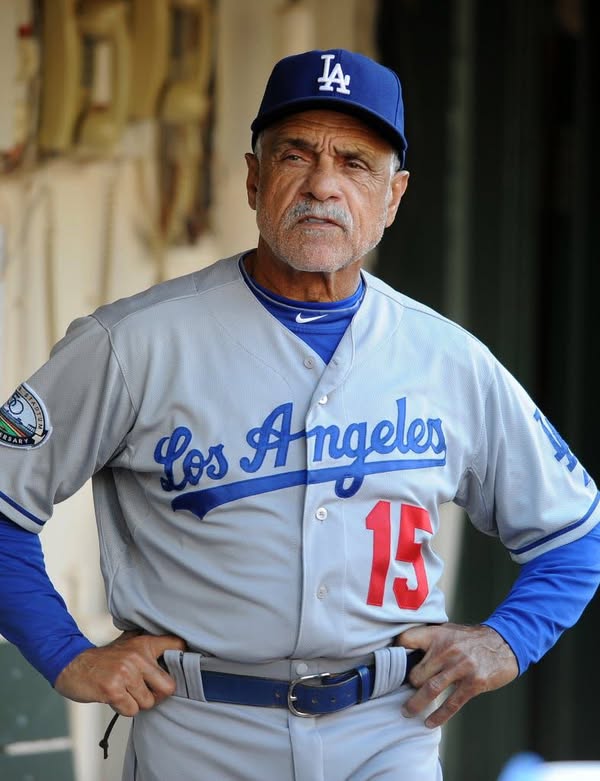Veteran Baseball Legend Davey Lopes Reflects on Four Decades in MLB, Facing Unprecedented Challenges and Changes in the Game
Davey Lopes has spent the last 40-plus seasons in Major League Baseball, carving out an extraordinary career first as a player and then as a coach. Throughout these four decades, Lopes has witnessed the evolution of the sport in ways few can truly understand. From the era of gritty, hard-nosed baseball in the 1970s to today’s technologically advanced, analytics-driven game, Lopes has seen it all. Yet despite the vast changes he has witnessed, he admits there has never been anything quite like what is happening now.
Lopes’ journey through Major League Baseball began in the early 1970s, a time when the game was dominated by power hitters and speedsters who could steal bases at will. Lopes himself was known for his speed, athleticism, and baseball intelligence. Over his 14 seasons as a player, Lopes earned a reputation as one of the best second basemen of his era, a true catalyst on the bases and a tenacious defender. His playing days culminated with multiple All-Star selections and a World Series championship, cementing his legacy as a key figure in baseball history.
After hanging up his cleats, Lopes transitioned seamlessly into coaching, where he continued to influence the game for another 25-plus years. As a coach, Lopes worked with some of the best players and managers in the sport, helping to develop talent and shape winning teams. His insight into baserunning, defense, and team dynamics made him an invaluable asset in the dugout. Lopes became known for his ability to connect with players, helping them refine their skills while navigating the pressures of a Major League career.
But as much as Lopes has seen and experienced, he insists the current state of baseball is unlike anything he has ever encountered. The sport, once grounded in tradition and instinct, has undergone a seismic shift driven by technology, analytics, and changing player dynamics. Today’s game is influenced heavily by data, with teams employing advanced metrics to make decisions on everything from batting orders to defensive alignments. Players are constantly analyzed through video replay, biomechanics, and even wearable devices that track their every movement.
Lopes acknowledges the benefits of these advancements, recognizing that they have helped improve player performance and reduce injuries. Yet he also laments that the human element of the game—the intuition, the gut decisions, the old-school baseball wisdom—is sometimes lost in the process. He sees younger players and coaches relying heavily on numbers and computer models, which can at times diminish the creativity and spontaneity that once defined baseball.
One of the biggest challenges Lopes notes is the pace of the game. Baseball has always been a game of rhythm and timing, but the current emphasis on television ratings, commercial breaks, and pace-of-play rules has altered how the sport is played and viewed. Pitch clocks, limits on mound visits, and restrictions on warm-up pitches have been introduced to speed up the action, but Lopes questions whether this rush undermines the strategic depth that makes baseball unique.
Moreover, Lopes has witnessed a shift in player personalities and clubhouse culture. In the past, veteran players were often seen as mentors who took younger teammates under their wing, sharing knowledge and fostering team unity. Today, with the increased focus on individual performance and contracts, Lopes observes a greater sense of individualism and less emphasis on the collective good. While talented players still thrive, the sense of camaraderie and shared purpose he remembers is sometimes harder to find.
The role of the coach has also evolved. Whereas Lopes once spent hours teaching fundamentals and encouraging players to study the nuances of the game, modern coaching frequently involves interpreting analytics and communicating complex statistical insights. Coaches now serve as translators between the data and the player, helping them understand how to apply advanced metrics to improve their game. Lopes embraces this new reality but emphasizes that a balance must be struck to preserve the heart and soul of baseball.
Despite these challenges, Lopes remains deeply passionate about the game. He continues to work with young players and coaches, sharing his wisdom and perspective. He is hopeful that baseball can adapt to the new era while retaining its timeless qualities. For Lopes, baseball is more than just a sport; it’s a way of life that teaches valuable lessons about perseverance, teamwork, and character.
Looking back on his decades in the major leagues, Lopes is proud of how far the game has come, yet cautious about what lies ahead. The sport faces many questions about how to engage new generations of fans, how to integrate technology without losing authenticity, and how to foster a positive culture in an increasingly competitive environment. Lopes believes these challenges can be met with respect for baseball’s history and a commitment to its future.
As a player and coach, Davey Lopes has been part of baseball’s ongoing story for more than 40 years. His unique perspective offers valuable insights into a game at a crossroads, grappling with change while honoring tradition. He has never seen anything quite like this before, but his dedication to baseball remains unwavering. For Lopes and countless others, the love of the game endures, promising that baseball will continue to evolve and inspire for generations to come.



